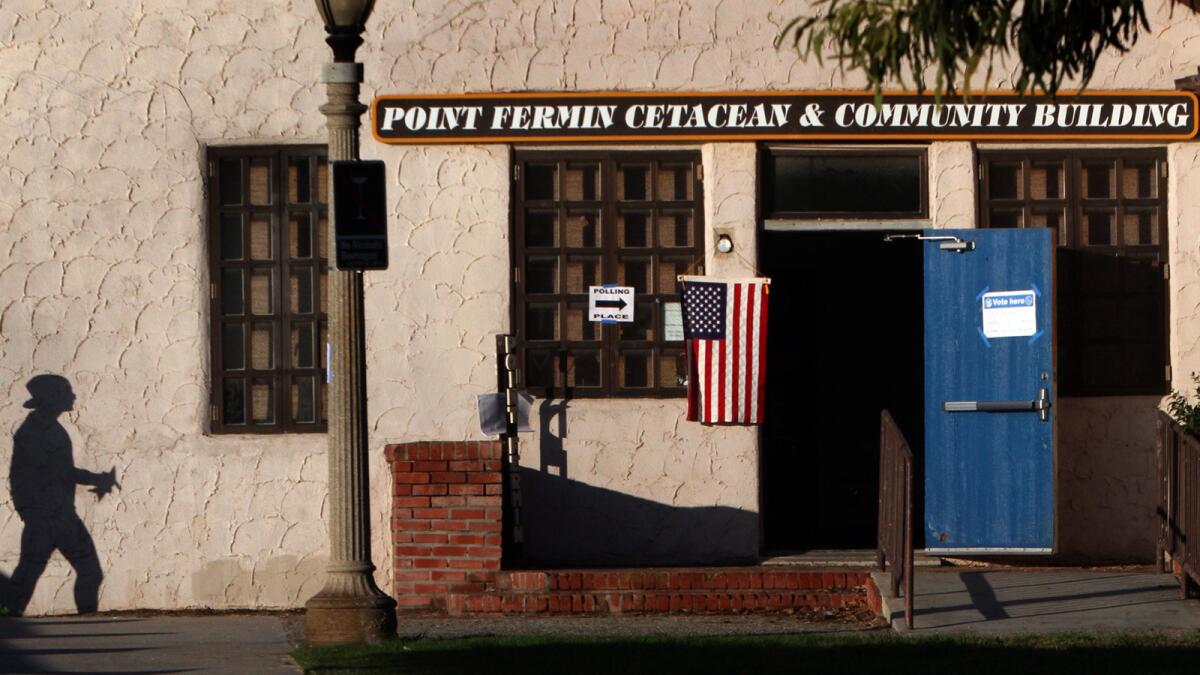Could U.S. Supreme Court case shrink California’s congressional clout?

A voter casts a shadow at a polling place in December.
- Share via
Reporting from Sacramento — The U.S. Supreme Court’s agreement Tuesday to hear a case that could potentially overhaul how political districts are drawn has sparked waves of speculation among political and legal wonks -- including questions as to how a ruling could affect California’s clout in Congress.
The case, which the court will hear this fall and rule on next year, centers on the “one person, one vote” principle that has long guided how political districts are drawn. Currently, districts are drawn to be of roughly equal size based on total population. But a Texas conservative group wants those lines to be drawn based on citizens who can vote.
Although the case pertains to state and local districts, experts say the justices could issue a ruling broad enough to also affect congressional lines, as well as the number of representatives each state sends to the House of Representatives.
Congressional seats are apportioned every 10 years, based on the census. States with large noncitizen populations -- such as California -- may be assigned fewer seats if only eligible voters are considered.
If the court’s ruling affected reapportionment, “California would be the biggest loser,” said Paul Mitchell, vice president of consulting firm Political Data Inc.
Mitchell estimated that California would lose six congressional seats, dropping to 47 seats from 53. Texas, which also has large numbers of people living in the country illegally, would face the second-largest drop, going to 32 seats from 36.
“The average size of a congressional district would go from the current 710,000 to approximately 500,000 per seat,” Mitchell said.
Rick Hasen, a professor of election law at UC Irvine, said it was unlikely that the court’s decision would affect how many representatives each state gets. He noted that references in the Constitution to apportionment explicitly reference numbers of people, not voters.
Follow @melmason for more on California government and politics.
More to Read
Sign up for Essential California
The most important California stories and recommendations in your inbox every morning.
You may occasionally receive promotional content from the Los Angeles Times.











